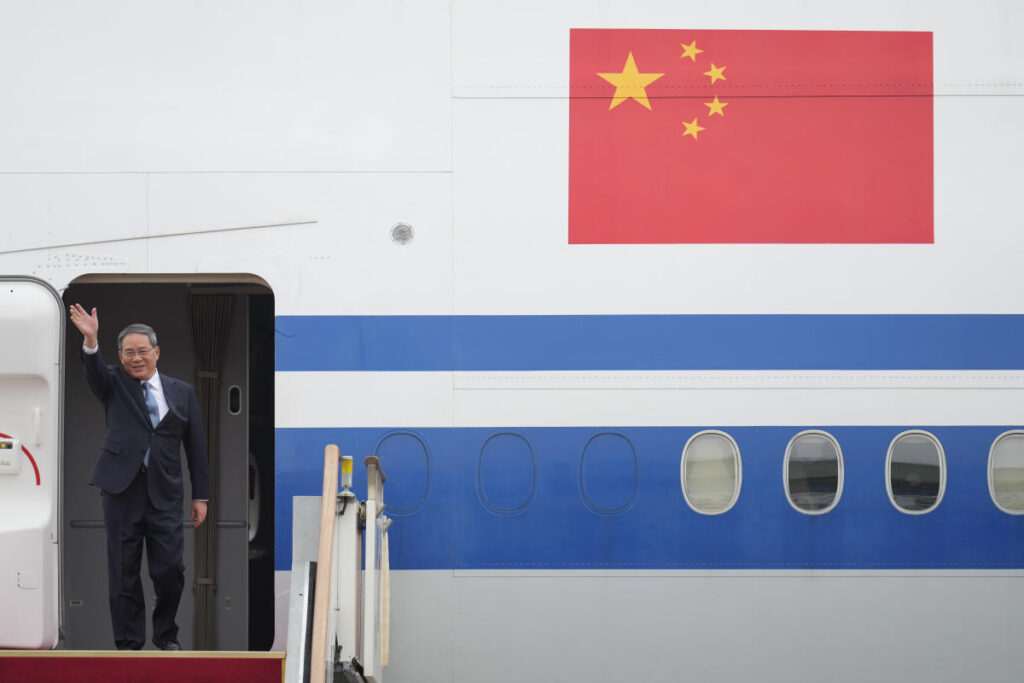SEOUL, South Korea (AP) — The leaders of China and Japan are due to arrive in Seoul on Sunday for separate talks with South Korea's president, a day before their first trilateral meeting in more than four years.
No major announcements are expected at Monday's trilateral meeting between South Korea, China and Japan, but the resumption of top-level talks is a positive sign and shows the three Asian neighbors are keen to improve ties.
The tripartite summit was meant to be held annually since the first meeting in 2008. However, due to the COVID-19 pandemic and the complicated relationship between the three countries, the meetings have been stalled since the last one, which was held in Chengdu, China, in December 2019.
Chinese Premier Li Qiang and Japanese Prime Minister Fumio Kishida are scheduled to hold bilateral talks with South Korean President Yun Seok-yeo after arriving in Seoul on Sunday to discuss ways to boost cooperation and other issues, according to South Korean officials. Li and Kishida are also expected to hold bilateral talks.
Yoon, Ri and Kishida will hold a tripartite meeting on Monday to discuss cooperation in six specific areas, including people-to-people exchanges, climate change, trade, health issues, technology and disaster response, according to South Korea's presidential office.
Sensitive issues such as North Korea's nuclear program, China's claims to Taiwan's autonomy and territorial disputes in the South China Sea are not on the official agenda, but some experts say North Korea's nuclear program, which poses a major security threat to South Korea and Japan, is likely to be discussed among the three leaders, though it is unclear whether and to what extent the contents of the talks will be made public.
The three neighbors are important trading partners and cooperation among them is key to promoting peace and prosperity in the region. However, they have repeatedly been embroiled in fierce disputes over a range of historical and diplomatic issues stemming from Japan's wartime atrocities. In recent years, the rise of China and U.S. pressure to strengthen alliances in Asia have also had a major impact on relations between the three countries.
South Korea and Japan are both vibrant democracies and key U.S. military allies in the region, but relations between the two countries have been hit hard in recent years over the issue of Korean forced labor during Japan's colonial rule from 1910 to 1945. Relations have improved dramatically since President Yun Moon Jae-in took a major step last year to put aside historical resentment and address shared challenges, including the North Korean nuclear threat, escalating U.S.-China conflict and supply chain vulnerabilities.
Since 2022, North Korea has been conducting a series of unprecedented and provocative weapons tests in an effort to develop powerful nuclear missiles capable of striking key facilities in the continental United States, South Korea and Japan. In response, South Korea, Japan and the United States have expanded their tripartite security partnership, drawing criticism from China and North Korea.
South Korea, Japan and the United States hope that China, North Korea's main ally and economic conduit, will use its influence to persuade the North to abandon its nuclear ambitions, but China is believed to have covertly supported the impoverished North.
Experts say South Korea, China and Japan now share the need for improved relations. South Korea and Japan want better ties with China because it is their largest trading partner. China, on the other hand, likely believes that greater cooperation between South Korea, Japan and the United States would hurt its own national interests.
“Amid complex changes both within and outside the region, we hope the upcoming summit can inject new impetus into tripartite cooperation and chart a better path for the mutual benefits of the three countries,” Chinese Foreign Ministry spokesman Wang Wenbin said on Thursday.


